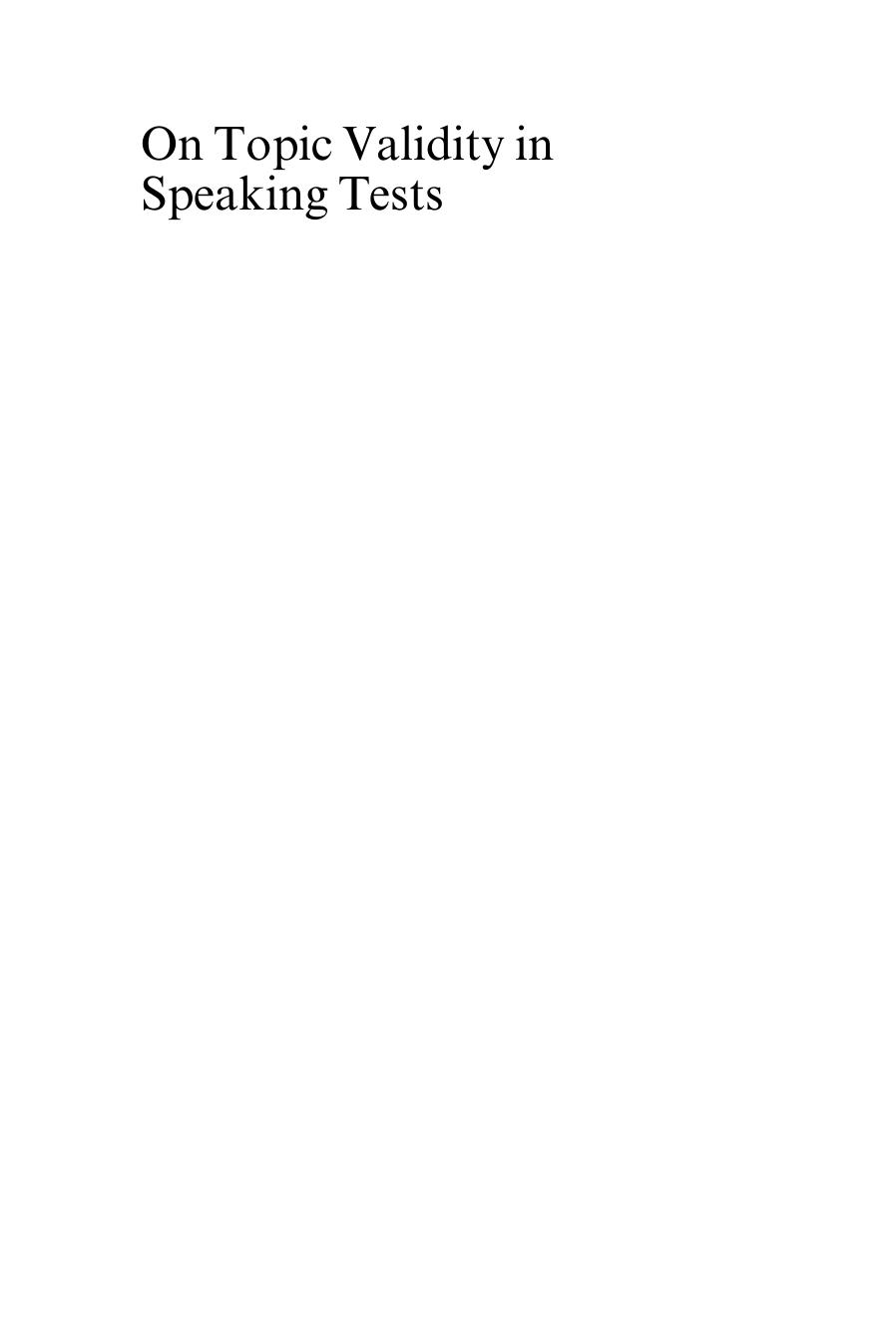

Most ebook files are in PDF format, so you can easily read them using various software such as Foxit Reader or directly on the Google Chrome browser.
Some ebook files are released by publishers in other formats such as .awz, .mobi, .epub, .fb2, etc. You may need to install specific software to read these formats on mobile/PC, such as Calibre.
Please read the tutorial at this link: https://ebookbell.com/faq
We offer FREE conversion to the popular formats you request; however, this may take some time. Therefore, right after payment, please email us, and we will try to provide the service as quickly as possible.
For some exceptional file formats or broken links (if any), please refrain from opening any disputes. Instead, email us first, and we will try to assist within a maximum of 6 hours.
EbookBell Team

4.0
6 reviewsTopics are often used as a key speech elicitation method in
performance-based assessments of spoken language, and yet the validity
and fairness issues surrounding topics are surprisingly
under-researched. Are different topics ‘equivalent’ or ‘parallel’? Can
some topics bias against or favour individuals or groups of individuals?
Does background knowledge of topics have an impact on performance?
Might the content of test taker speech affect their scores – and perhaps
more importantly, should it? Grounded in the real-world assessment
context of IELTS, this volume draws on original data as well as insights
from empirical and theoretical research to address these questions
against the backdrop of one of the world’s most high-stakes language
tests.
This volume provides:
The volume also contributes to critiques of recent models of
communicative competence with an over-reliance on linguistic features at
the expense of more complex aspects of communication, by arguing for an
expansion of current definitions of the speaking construct emphasising
the role of content of speech as an important – yet often neglected –
feature.
This volume will be a valuable resource for postgraduate students,
those working professionally in the field of speaking assessment such as
personnel in examination boards, item writers and curriculum
developers, and anyone seeking to better understand and improve the
fairness and validity of topics used in assessments.